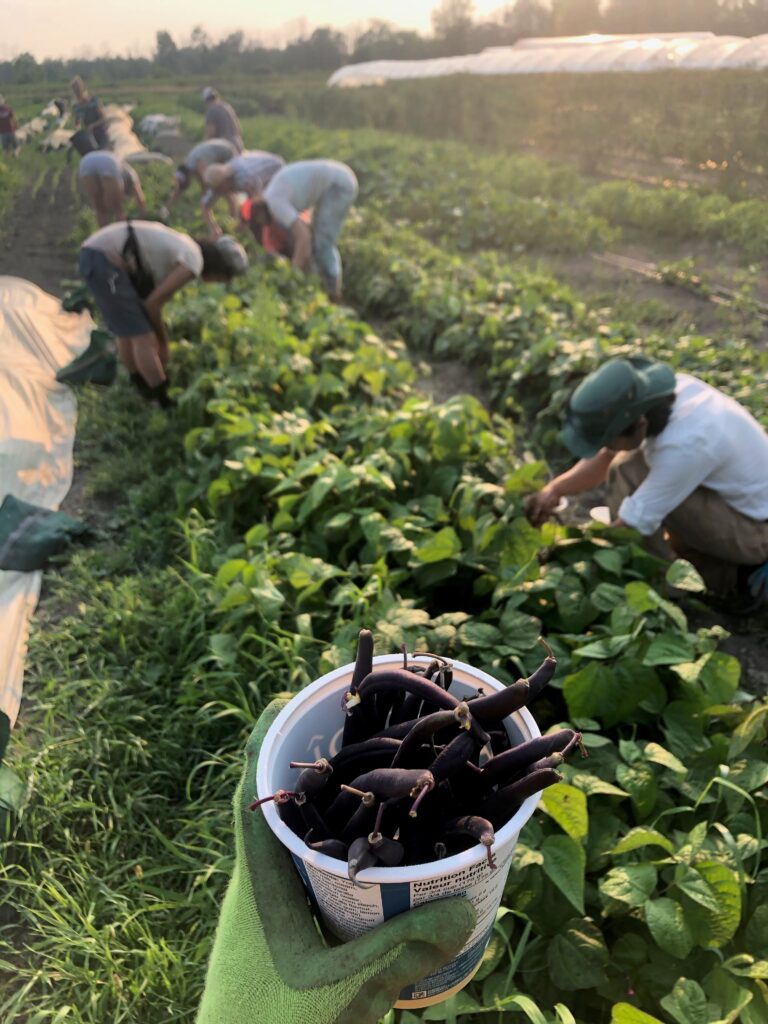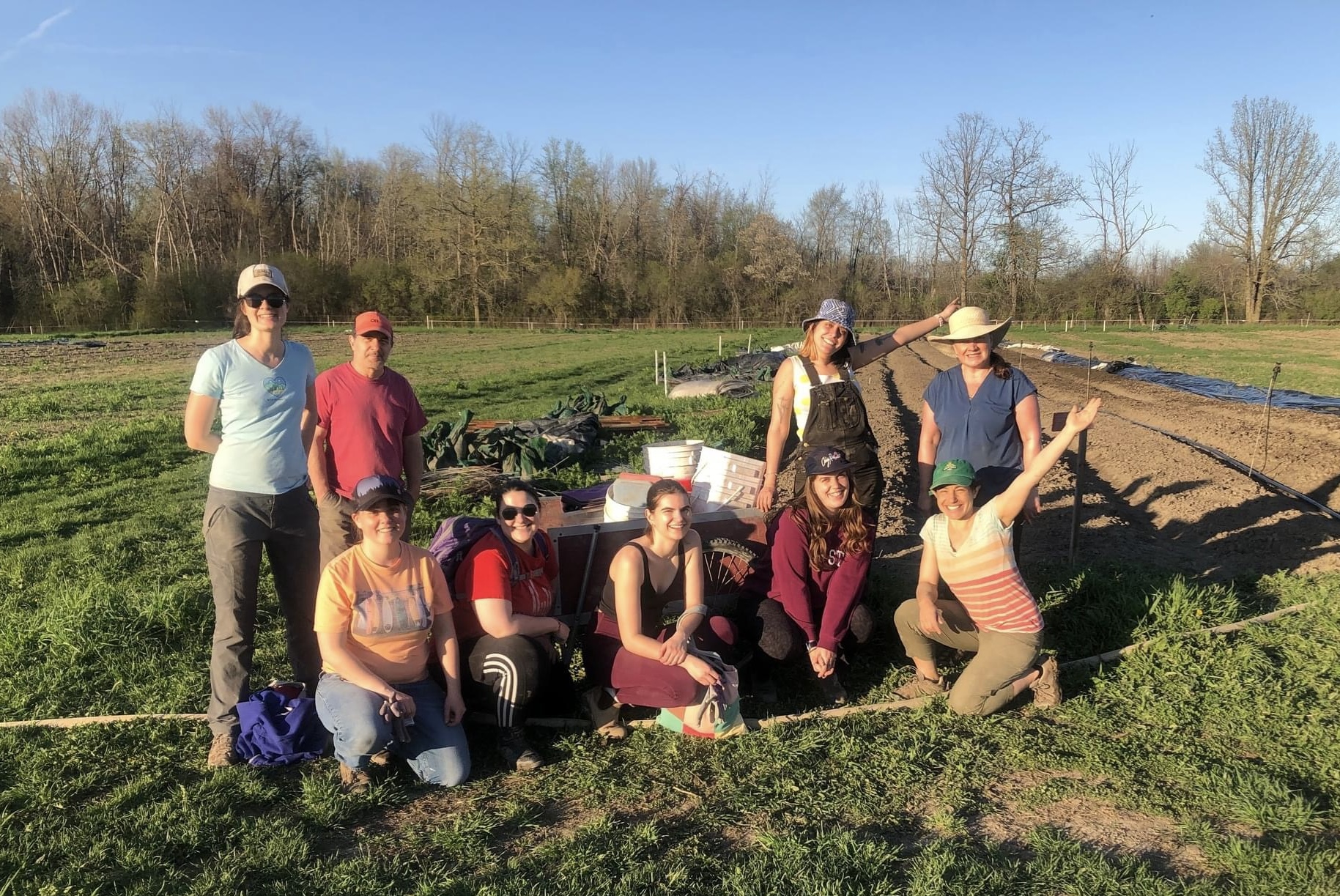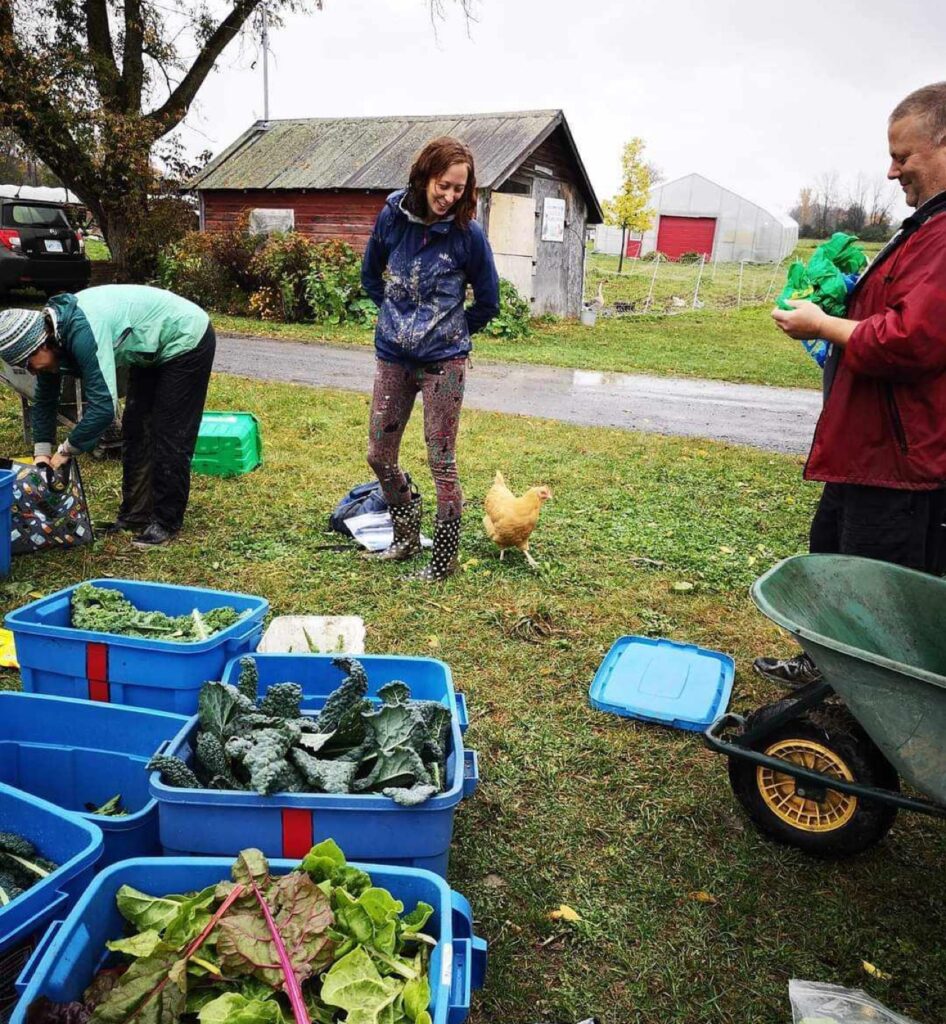In 2017 a group of young farmers founded the Beetbox cooperative farm who saw the value of coming together to grow good food for the community. As a workers co-op, its members own and democratically manage the farm. That means the farm is committed to creating good jobs for new farmers while contributing to food security for all. The farm is in Ottawa’s Greenbelt, the largest publicly owned greenbelt in the world. It’s surrounded by protected forests and wetlands, and has a history of farmers growing with more sustainable methods right next to the Ottawa river.
The farm has also expanded over the years into quite a community hub. Like many local farms, it offers a 3-season vegetable subscription program. It also has a farm store where customers can buy on-the-spot, and community events throughout the year. We dove in deep about the future of farming in 2021 with one of the founders of Beetbox, and you can read all about it here.

ComFarm in the field. Photo: Beetbox
One of the most innovative projects at Beetbox is the Community Farm Program (they call it ComFarm) that’s been successfully operating since 2020. The idea behind it is simple: a coordinated group of gardeners with a little bit of planning, expertise, and equipment from the farm can produce a lot more food than the same gardeners working alone. Community Farm is like a grow-your-own CSA basket. Participants work a weekly or biweekly shift in the collective garden plot (a ½ acre) at BeetBox Farm. From May to September, they weed, prep, plant and maintain the collective plot, and harvest a weekly share of fresh veggies from it.
The difference between grocery store arugula and arugula from the farm is so stark that people feel like they haven’t even tried arugula. – Hans Johnsen, long-time ComFarm shift coordinator who grew up on a farm.
There is a sliding scale of cost to join the program, and participants can choose which level of payment they are comfortable paying, to support wide access to the program. Volunteer coordinators run the program and plan shifts six days per week on evenings and weekends during the farming season. There is no serious gardening experience necessary to join.

ComFarm field prep. Photo: Beetbox
Participants love the program because they get to play in the dirt with others outside, exercise, and grow much more food than they could alone with the combined resources and labour. Once the grow season is up and running, everyone returns home from their 3.5 hour shift with their own food box. ComFarm gives its surplus produce to local food banks, a much-needed service since 1 in 7 people in Ottawa are currently food insecure.

ComFarm Harvest. Photo: Beetbox
We asked the good folks at ComFarm about their experiences at the farm, and here is what they have to say:
What inspired the idea of ComFarm at Beetbox?
ComFarm was born during the pandemic out of a desire to connect outdoors safely while growing food. Farms were considered an essential service so could remain open.
The cost of food in Canada has made been making the news daily, is ComFarm also affected by these market fluctuations?
“Yes, the cost of tools, seeds, other inputs, and leasing land have gone up with inflation. Thankfully, we still manage to offer ComFarm shares at a sliding scale. That means that people who are better off can pay more to subsidize those who need help. It’s a great program! The ComFarm share is super great value. We estimate that people get the market value of $1000 worth of super fresh, super local veggies with a ComFarm share,” Angela Plant, Beetbox worker-owner and marketing wiz.
Which produce items are ComFarm volunteers most excited about bringing home?
“I think garlic excites a lot of people. And tomatoes. But I think what excites people even more than a specific item is the abundance of our harvests. They go home with a large bag of so many items. And they love how the items vary,” Maureen Russell, long-time ComFarm shift and greenhouse coordinator
Growing healthier food takes a whole community. It is so much hard work, time commitment, and often done for wages that should be higher considering the importance of the service, especially as the cost of everything goes up and the climate gets more difficult to deal with. If we want farms to keep feeding us into the future while protecting our super precious greenbelt, getting involved in a program like ComFarm is the way to go. It’s super fun, meaningful and great exercise – Julie Baribeau, past full-time farm worker, now ComFarm coordinator and advocate for better food systems.
If you are interested in volunteering with ComFarm and filling your home with fresh fruits, veggies, and herbs there are still spots available for the 2024 growing season.


.gif)





